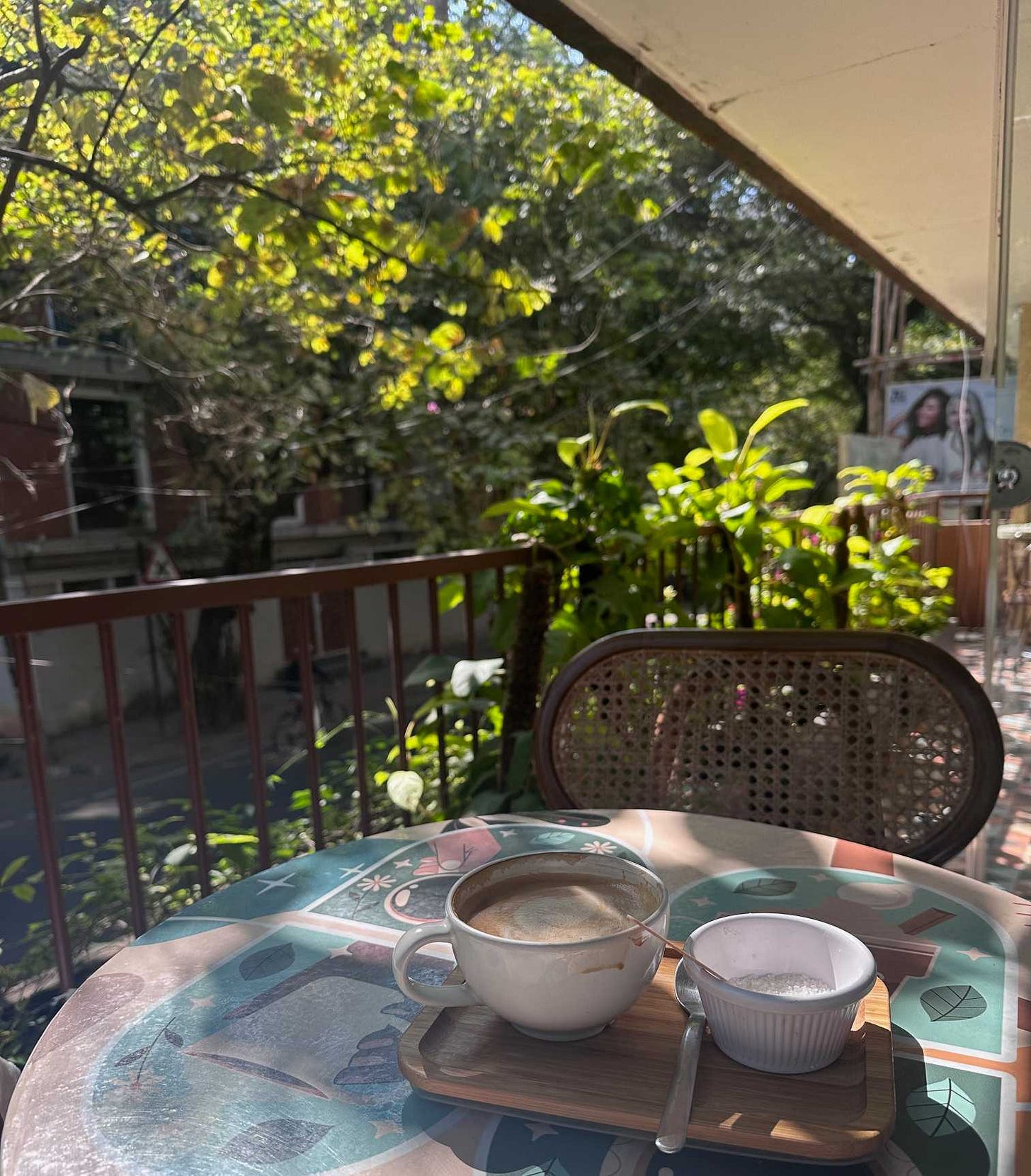Thinking about home
The things that make us who we are beyond the physical, and the immense gratitude it exists at all
The coffee shop I like to visit in Bangalore
I hope you’re enjoying As I Was Saying with Poorna Bell, and if you’ve found it funny, helpful or you simply liked the writing, it is entirely a reader-supported and funded publication. If you’d like it to keep going, and have access to the full archive, and be able to comment, the best way to support is throu…
Keep reading with a 7-day free trial
Subscribe to As I Was Saying with Poorna Bell to keep reading this post and get 7 days of free access to the full post archives.




